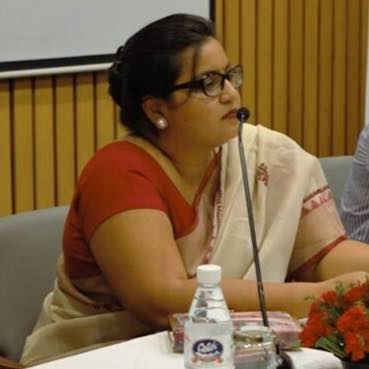Apex Court to Re-Examine Adultery Laws; What Does This Mean for Indian Women?
“Though the act is hypothetically capable of being committed by both the man and the woman, only one is liable for a criminal offence.”

Vikram and Nisha have been married for nine years. They both are successful professionals and lead a seemingly happy life. In the tenth year of their marriage, Nisha falls in love with her colleague Akash. Vikram finds out about this affair and collects evidence of this. When he has enough evidence, he files a case of adultery under the relevant IPC provision.
In India, under the existing provisions, women cannot be prosecuted for adultery. So in the case mentioned above, Nisha’s husband can press charges of adultery on Akash, who can get jail time of up to 5 years, but the same is not applicable for Nisha. This could, however, change, with the Supreme Court agreeing to revisit the provision.
The definition of adultery is—voluntary sexual intercourse between a married person and a person who is not their spouse.

Photo Source
In this case, both Nisha and Akash are culpable of committing adultery. However, the law does not look at both parties in an adulterous relationship in the same light.
Section 497 of the Indian Penal Code, which deals with adultery, reads as follows:
“497. Adultery—Whoever has sexual intercourse with a person who is and whom he knows or has reason to believe to be the wife of another man, without the consent or connivance of that man, such sexual intercourse not amounting to the offence of rape, is guilty of the offence of adultery, and shall be punished with imprisonment of either description for a term which may extend to five years, or with fine, or with both. In such case the wife shall not be punishable as an abettor.”
There are two things that this section lays down:
1. Only men, and not women, are punished for committing adultery.
2. The maximum punishment for adultery is five years with fine.
Talish Ray, Managing Partner TRS law offices and Project Director, Girlsgottaknow (an information initiative for young women) says, “The fundamental flaw in this definition is that it treats women as the property of the husband. In my opinion, there is no need to amend the section.”
“The question here is whether the state should be entering into a private space between two consenting adults.”

“It is an archaic provision, more so when we are in the day and age of ‘tinder’. It is just another way of enforcing submissiveness of women in the marriage. The need of the hour is perhaps to do away with this provision entirely.”
Hearing a petition filed by Joseph Shine, challenging the constitutionality of Section 497 IPC read with Section 198(2) of the CrPC, a bench headed by Chief Justice Dipak Misra and Justices AM Khanwilkar and DY Chandrachud, issued the notice after hearing the petition.
It asked why a married woman, who is equally liable for committing adultery with another married man, is not punished along with the man.

Observing that the section relieves the woman of any liability, the bench said, “Though the act is hypothetically capable of being committed by both the man and the woman, only one is liable for a criminal offence.”
The court also said that the provision goes against gender neutrality and treats women like personal property. “It is perceivable from the language of the provision, that the fulcrum of offence is destroyed once the consent of husband is obtained,” the court said. “Viewed from that scenario, the provision creates a dent on the independent identity of women.”
In 1951, Yusuf Aziz challenged the constitutionality of this provision, but the Bombay High Court upheld the section. In 1971, the Fifth Law Commission made some suggestions about changes in the provision, including making the law gender-neutral and reducing the prison term from five to two years. Those recommendations were also not considered.
In 2006, the National Commission for Women rightly recommended that adultery be decriminalised. At a time when many jurisdictions around the globe have decriminalised adultery, we in India are still considering whether or not to decriminalise it. The existing gender discriminatory penal law of adultery, deserves a serious relook and revision, if not declared completely unconstitutional.
Like this story? Or have something to share?
Write to us: [email protected]
Connect with us on Facebook and Twitter.
NEW: Click here to get positive news on WhatsApp!
This story made me
- 97
- 121
- 89
- 167
Tell Us More
We bring stories straight from the heart of India, to inspire millions and create a wave of impact. Our positive movement is growing bigger everyday, and we would love for you to join it.
Please contribute whatever you can, every little penny helps our team in bringing you more stories that support dreams and spread hope.



















